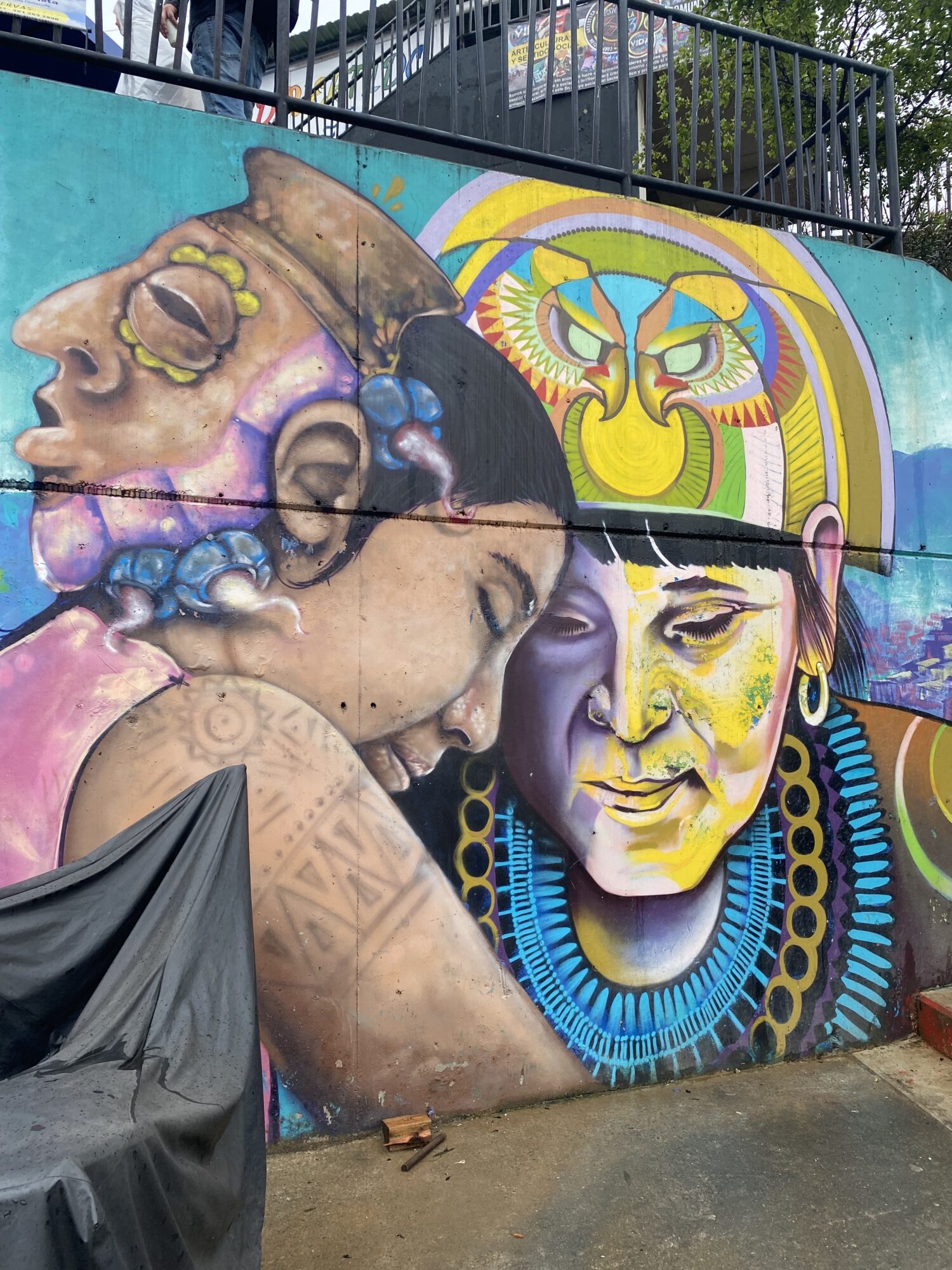Centering Care: Lessons from Colombia’s Transitional Justice Process
Our second blog on healing and wellbeing in our Colombia work highlights the importance of centering psychosocial care in the pursuit of justice.
Our second blog on healing and wellbeing in our Colombia work highlights the importance of centering psychosocial care in the pursuit of justice.

There is a growing recognition in the transitional justice field of the importance of integrating psychosocial support into the long and arduous work of social healing in the wake of atrocity. The Colombian Truth Commission took a holistic and comprehensive approach to its mandate. This is reflected in its very name the “Comisión para el Esclarecimiento de la Verdad, la Convivencia y la No Repetición,” which was poetically translated by one of the two international advisors to the Commission, John Paul Lederach, as ‘the Commission to Shed Light on Truth, Living Together, and Never Repeating Violence’ (please see page 91 of The Pocket Guide for Facing Down a Civil War for Lederach’s reflections on the Truth Commission). The Truth Commission took extensive measures to ensure psychosocial support and care were integrated into its structure, mechanisms, and approach. In this way, it offers innovative insights and examples of how to holistically embed psychosocial support into transitional justice processes. This contribution to the transitional justice field is explored alongside others in the recent publication A Look at the Colombian Truth Commission: Lessons, Reflections, and Seven Contemporary Challenges.
The Truth Commission was designed to center victims’ experiences and voices, a fundamental element of a psychosocial approach to transitional justice. Each facilitated encounter with victims, whether private or public, was seen as a dignifying act and unique opportunity for connection and trust-building among those who participated in the Truth Commission’s processes. Great care was given to how the Truth Commission team, including the Commissioners and staff, interacted with people across all phases of engagement for each ‘Encounter for Truth’ – with consideration to key dynamics of support before, during, and after each encounter. This care was embodied in numerous ways, including the establishment of a psychosocial team that ensured the Truth Commission team was trained in psychosocial approaches and accompanied through the encounters, from the initial contact to the moment of closure.
When sharing the stories of deep wounding, pain, and potential trauma, it was essential that attention be given beforehand to the preparation of the individual(s) involved, the physical space, and the relationships among facilitators and participants. The Truth Commission team helped cultivate the conditions of emotional security and confidence among those participating to share their testimonies. The expectations and fears of victims and those responsible for the atrocities were explicitly attended to, thereby assuring a respectful and dignifying experience. In her chapter on the psychosocial approach, Dora Lucía Lancheros Perico, a member of the psychosocial team and psychologist specialized in human rights, reflected on the relational and procedural elements of preparation that centered the dignity of victims: “Respect is a balm for wounds and helps to rescue an identity that has been affected by events that have led to accusations, stigmas, and moral damage.”
Another powerful way in which the Truth Commission integrated psychosocial support into its processes was by providing care for staff members during their mandate. The psychosocial team aimed to support individuals and teams to build emotional resilience and embed strategies to reduce emotional exhaustion. Examples of this practice included supporting social cohesion and conflict resolution efforts on teams, providing self-care training for individuals and collectives, and offering therapy sessions. Despite these efforts, staff care was often deprioritized in the shadow of the immense task the Truth Commission team faced to prepare and engage in Encounters for Truth and document the testimonies of victims and those responsible.
The Truth Commission team was invited to gather in person and virtually in ‘re-encounters’ one year after the delivery of the final report. These spaces were crafted to offer commissioners and staff the opportunity to express and collectively process the impact their engagement with the Commission had on their lives following their mandate. Various creative and holistic methodologies were proposed, including arts and movement-based practices to deepen reflection, expression, and exchange. It was a novel space, the first of its kind for any truth commission. The re-encounters shed light on the sacrifice and commitment of those who dedicated themselves to this work for four years of their lives, providing a needed space of catharsis. In the final evaluation of the gatherings, one participant poignantly shared the importance of honoring the effort and work in peacebuilding: “It was a great exercise to come together again, to make that investment in time, money, and energy to meet anew. Not only is it a great recognition of the work, it is knowing that we always matter, not only as workers. It is a dignifying gesture.”
These examples illustrate some of the ways that psychosocial support and care were attended to as a fundamental dimension of the Truth Commission’s activities in design, preparation, implementation, and follow-up. Three years on from the conclusion of the Commission’s mandate, learning continues to emerge, which can help to advance the ways in which transitional justice mechanisms center victim voices, foster dignity, ensure care, and accompany social healing.
Photo: Mural in Medellín, Colombia by Jomag Ariza, Cesar Figueroa, and Damianm Figueroa Berrio.